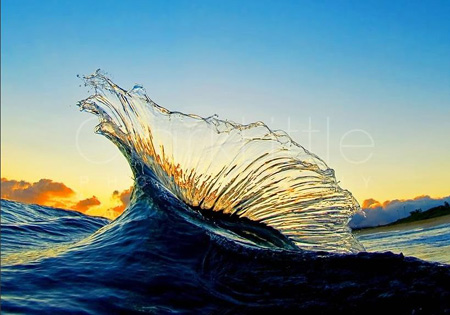|  FACCIA DEL TEMPO CHE PI┌ NON ╚
FACCIA DEL TEMPO CHE PI┌ NON ╚
John Hoffman

If you will come you will come... Mabinogion
Se non ce ne sono, non ce ne sono
Se non è tempo, tempo non è
Non ritagliare il tempo bensí i mutamenti
O salubre martedì pomeriggio
O vascello su una lacrima perso
Quando non è stretto dentro alla morsa
Sopra, sotto e dappertutto si muove il tempo
Per il lucernario aperto
Il tempo che non è esploso
O occhi alla tua finestra
Albero nel giardino che si piega
Foglie sparse sul mio cappotto
Albero fuori dalla mia finestra
Spezzato dai recinti
Se vieni, vieni
Se guerra vorremo guerra avremo
Oh fuga al sud
O confini ultimi infranti
Capelli dell'idolo giallo attempato
Di questo essere spezzato asse
Miopia del viso che si allontana
Comignoli aperti al freddo
Consunto e calpestato selciato d'autunno
Se il tempo non è costretto tempo più non è
Bensí mutamento o mondo o amore
O aperta strada e gelida
Dove dentro una lacrima si perde il lamento
In lingua originale:
FACE OF TIME WHICH IS NO LONGER
John Hoffman
If you will come you will come . MOBINOGION
If there are none there are none
If the time is not it is not
Do not make time but change
O salubrious Tuesday afternoon
O ship lost on a tear
The time that is not forced
Moves above throughout and
Down the open light-well
The time that is not exploded
O eyes at your window
Tree in the bending garden
Scattered leaves upon my coat
Tree outside my window
Broken by enclosuring
If you will come you will come
If we will war we shall war
O flight to the south
O broken ulterior borders
Hair of the aged yellow idol
Broken axle of this being
Myopia of the far-receding face
Chimney open to the cold
Worn trodden floors of Autumn
Time if not forced is no longer
Time but change or world or love
O chilling open street
Where the lament is lost within the tear
(Poesia tratta da Journey to the end . Sezione di Tau che comprende gli scritti di John Hoffman, pubblicata da City Lights Books, San Francisco, 2008. Traduzione a cura di Pina Piccolo.)
Nonostante la morte prematura nel 1952, a soli 24 anni, in Messico in circostanze misteriose (secondo la leggenda sparý in un vulcano), il poeta statunitense John Hoffman divenne un simbolo per i poeti della Beat Generation. Infatti, secondo Lamantia, sono a lui dedicati i versi "angel headed hipsters burning for the ancient heavenly connection to the starry dynamo in the machinery of night" , in Howl, di Allen Ginsberg. Inedito per moltissimi anni, la sua raccolta "Journey to the end", compresa in Tau raccoglie versi dalla misurata eleganza, la cui liricitÓ apocalittica sembra mandare segnali da un altro mondo, ermetico e visionario in cui non intrude mai la modernitÓ.
  Precedente Successivo Precedente Successivo  Copertina Copertina
|